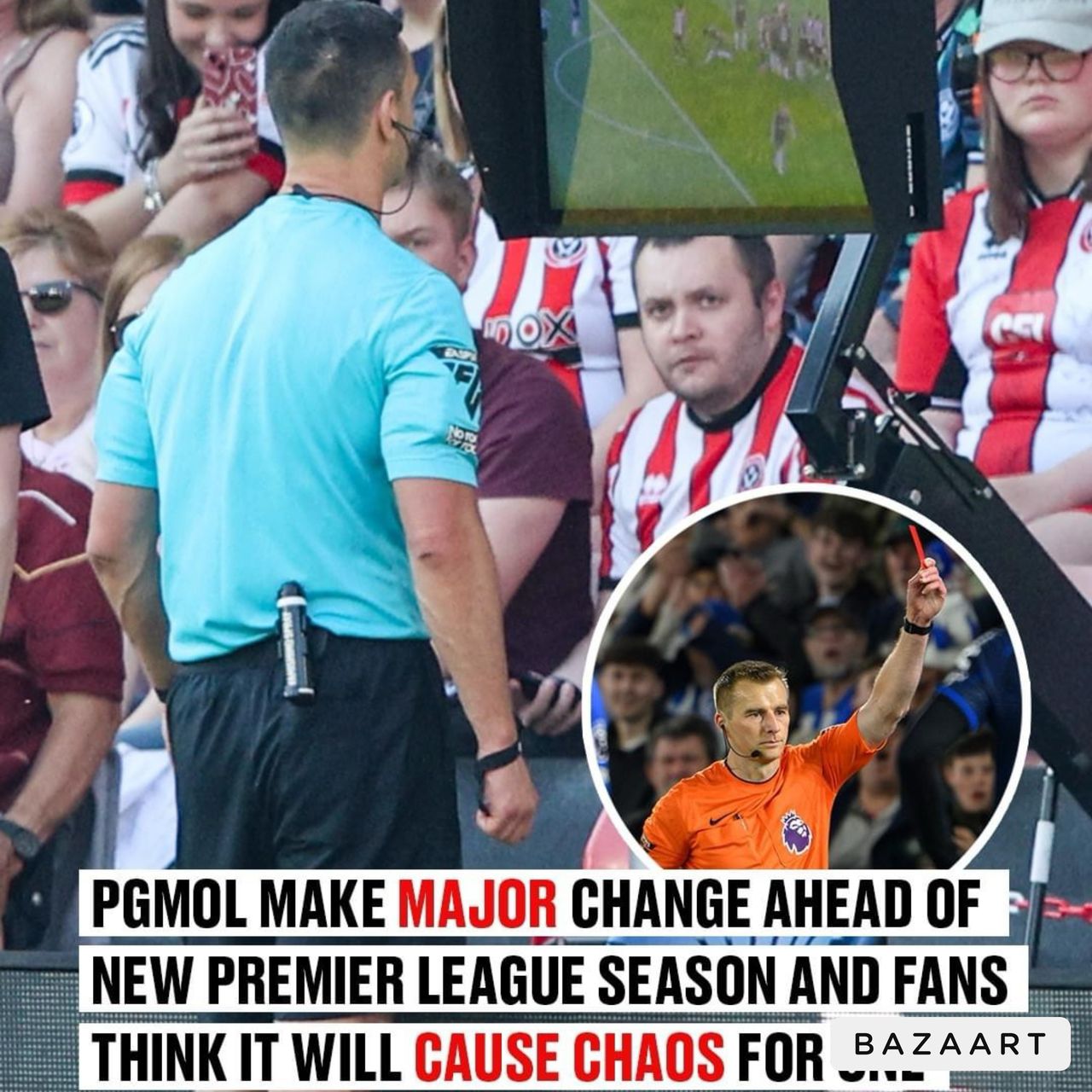The Professional Game Match Officials Limited (PGMOL) is gearing up to introduce a major change for the 2024/25 Premier League season, one that has already generated a buzz among fans who believe it could lead to a significant shake-up on the pitch, potentially creating chaos. This upcoming modification is part of a broader initiative by PGMOL to refine and enhance the way the game is officiated, particularly in light of recent criticisms and ongoing debates surrounding the consistency of refereeing decisions in English football.
As the authoritative body overseeing referees in England, including the controversial yet essential Video Assistant Referee (VAR) system, PGMOL has the daunting task of ensuring that the game is played fairly and that decisions are as accurate as possible. In an era where technology increasingly influences sports, the introduction of semi-automated offside technology this season marks a pivotal moment. This cutting-edge system aims to minimize human error by providing more precise and quicker offside decisions, reducing the margin for controversy and, ideally, making the game smoother for both players and fans alike.
In conjunction with this technological advancement, the Premier League has taken a bold step in terms of transparency and fan engagement by launching its own Match Centre account on Twitter. This platform is designed to offer live explanations of VAR decisions, giving supporters a real-time look into the rationale behind critical calls made during matches. By having direct access to communications from the VAR Hub at Stockley Park, fans can now gain insights that were previously unavailable, potentially demystifying some of the more contentious decisions that often dominate post-match discussions. This move represents an effort to bridge the gap between the officials and the audience, ensuring that the reasoning behind decisions is as clear and understandable as possible.
However, one of the most talked-about changes this season is the adjustment to how holding and obstruction, particularly during set pieces, will be officiated. Reports from *The Times* indicate that PGMOL is set to enforce this rule with much greater stringency, focusing on situations where players block or obstruct their opponents’ movements. This crackdown is expected to be especially impactful during set pieces, where holding and impeding opponents have long been contentious issues, often leading to heated debates over what constitutes a foul.
Under the new guidelines, any action by a player to halt the movement of an opponent, whether by holding or blocking, will be met with a more severe response from referees. This includes scenarios where goalkeepers are held or obstructed in their efforts to reach the ball during corners or free-kicks—a tactic that has become increasingly prevalent in recent seasons. By penalizing these actions more consistently, PGMOL aims to reduce unfair advantages gained through such fouls, thereby fostering a more level playing field.
The implications of this change are far-reaching. For one, it is expected to lead to a significant increase in the number of penalties awarded, adding an extra layer of drama to Premier League matches. Penalties, as high-stakes moments in any game, could potentially swing the momentum in favor of one team, making the outcome of matches even more unpredictable. However, this heightened scrutiny could also result in more goals being disallowed due to infringements, as referees clamp down on illegal actions during set pieces. This dual effect could lead to games being decided by the smallest of margins, with teams needing to be more disciplined in their defensive strategies.
The fan reaction to this impending change has been immediate and lively, with many already speculating on which players might be most affected. One player who has been frequently mentioned is Arsenal’s Ben White, known for his physical and sometimes provocative playing style. Fans have humorously suggested that White will adapt to these new rules by finding innovative ways to push the boundaries of sportsmanship. One fan quipped, “Ben White will take s**thousery to the next level this season, and I’m here for it,” suggesting that White might continue to use his cunning on the field despite the tighter regulations. Another fan added with a hint of irony, “Laughing at the fact they did this just for Ben White, and he’s not even in the box for set pieces anymore,” pointing out the perceived targeting of his playing style, even though he is often positioned away from the most critical areas during set pieces.
As the 2024/25 Premier League season unfolds, all eyes will be on how these changes influence the dynamics of the game. Will the stricter enforcement of holding and obstruction rules lead to a cleaner, more fluid style of play, or will it create the chaos that many fans are predicting? Additionally, the combination of new technologies like semi-automated offsides and increased transparency through platforms like the Match Centre Twitter account could fundamentally change how fans experience the game, potentially leading to a new era of football where clarity and fairness are at the forefront.
Ultimately, these changes underscore PGMOL’s commitment to evolving the sport in response to modern challenges and the growing expectations of fans. Whether these initiatives will achieve their intended goals remains to be seen, but one thing is certain: the 2024/25 Premier League season is shaping up to be one of the most intriguing in recent memory, with the potential for significant shifts in how the game is played and perceived. Fans, players, and officials alike will have to navigate this new landscape, where every decision could have far-reaching consequences.



